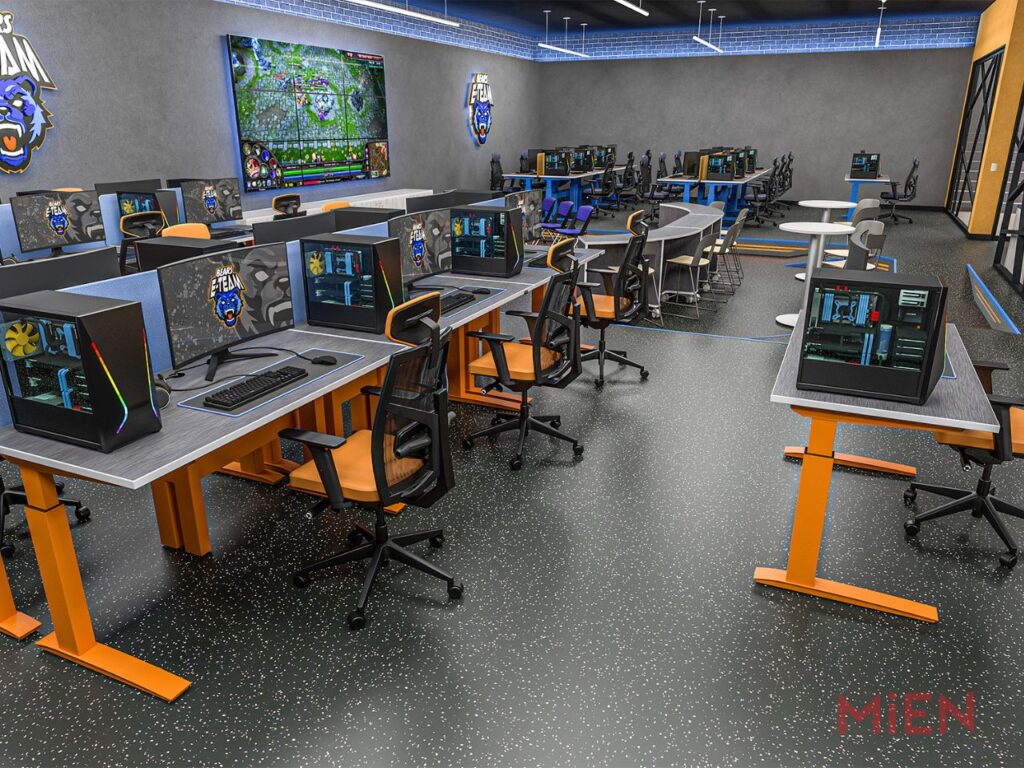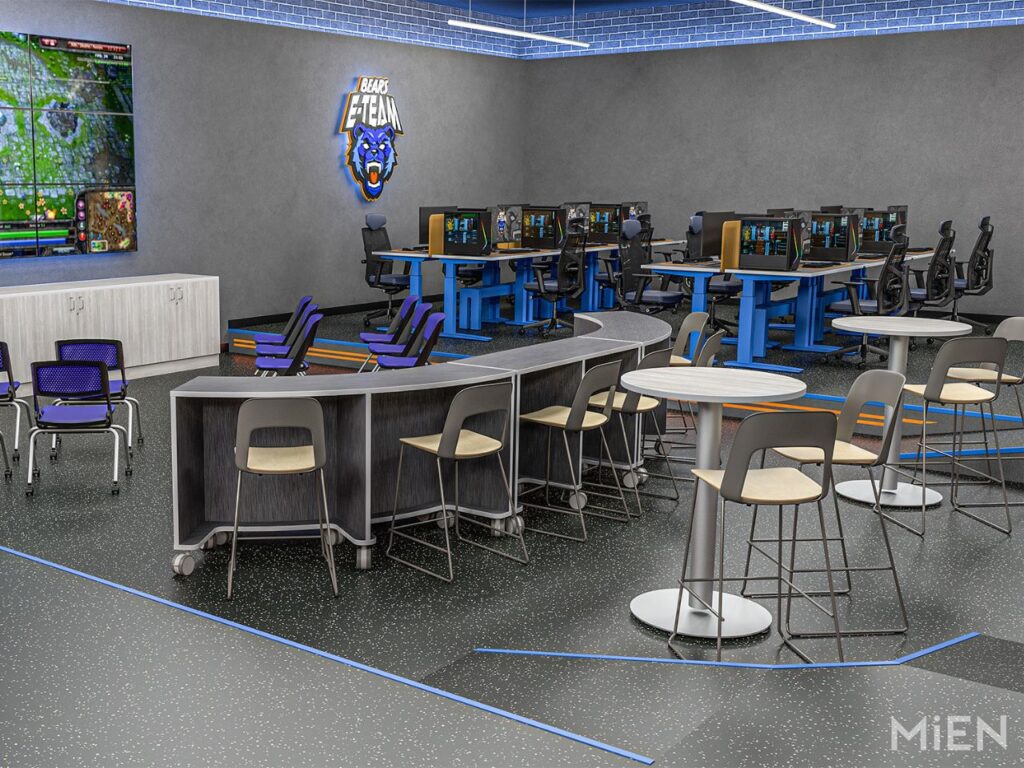There are three ways schools and universities can work with gaming and esports to increase the students’ STEM and 21st-century learning skills.
The 3 Foci
1) Focus on learning
As a teacher: when teaching students, focus on developing their skills, paying specific attention to certain ones they need to learn. Set objectives for every student to achieve. Then, create tailor-made assignments within every game for each student. Typically, a student plays several different games, chosen based on the individual and their learning competence. Gaming thus becomes an important tool for teaching.
2) Focus on sports
As a coach: when coaching players to become better at their chosen game, use esports as a sport. Use their competitive spirit and motivation to develop their understanding of tactics, strategies, and functions, as well as their physical attributes, such as speed, sharpness, and endurance.
3) Focus on having fun
As a facilitator: when creating the framework for gamers, create a culture of fun. Gamers find each other and develop friendships and communities through play and teamwork. Gaming becomes a tool that creates human bonds through fun and play.
How Teaching Esports can Boost Students’ STEM & 21st Century Learning Skills
STEM learning skills
(Science, technology, engineering, and mathematics)
21st-century learning skills
(Critical thinking, Creativity, Collaboration, Communication, Information literacy, Media literacy, Technology, literacy, Flexibility, Leadership, Initiative, Productivity, and Social skills)
When teaching classes using esports, there is a fire in students’ eyes because they are working within their own interests. Their association between their interests, such as gaming, and real-life skill, such as economics, makes the subject easier to learn and remember because the context is more relatable.
When teaching the esports game: Farming Simulator, many 21st-century learning skills are present. The students are given a budget of $500,000 to develop a well-structured farm. They make budgets, prepare work plans, distribute tasks, review the advantages and disadvantages of various vehicles, and analyze the mechanical properties to determine which machines to use for specific tasks.
Students in high school classes with CS:GO also experience learning these 21st-century skills. In CS:GO, students play 5 vs. 5. automatic. The teams work together, and each team member participates. The leading role alternates so that fresh ideas can surface and increase the team’s likelihood of winning the game.
Working with esports demonstrates that self-motivation (their game) and a smart combination of traditional teaching and modern technology can create a new, highly motivational, and better learning experience for young people.
STEM: Science
When teaching students how to build machines and explain how technology works, we build real machines in Minecraft and let the students get hands-on experiences.
STEM: Technology:
When teaching students how to play games, we dive into how the games are made, examine the development of games, and learn how new games are developed.
STEM: Engineering:
We use a variety of games to work with engineering. For example, we set up civil engineering tasks in Minecraft and mechanical engineering tasks in Space Engineers. Students get different types of tasks to solve, like gathering supplies, making a supply chain, and building spaceships.
STEM: Mathematics:
When teaching students by playing the Farming Simulator, we teach mathematics, economics, statistics, and the value of money in and outside the game.

21st: Critical Thinking:
Students learn critical thinking skills when they engage in communities while playing MMORPG games like world of warcraft.
21st: Creativity
Teaching students games like Space Engineers and Planet Coaster gives them the freedom of creativity, building, visualizing multitasking, and more.
21st: Communication skills:
We train communication skills in all parts of esports: before gaming, when the team/class works out their expectation alignment; when gaming, in making the team work together; and after gaming, in evaluating the team performance and goals. We train in pairs, groups, tournaments, physical events, online events, and more, all of which enhance students’ communication skills.
21st: Problem-solving
Teaching games like Counter-Strike, Valheim, League of Legends, and Fortnite teaches students to live problem-solving. We practice pre-gaming planning and analyzing and teach in-game problem-solving and past-game evaluating.
21st: Perseverance
When teaching games like World of Warcraft, Counter-Strike, or League of Legends, the students practice their perseverance by letting students make their game strategies and define their roles in that strategies. Self-discipline, planning, adaptability, and initiative are vital to creating a great game strategy.
21st: Collaboration, social skills, and social responsibility
When teaching almost every multiplayer game, from FIFA to Fortnite to Call of Duty, students learn to work together, analyze plans and strategies, and work toward a common goal. They learn that they can only be successful when working with others. Problem-solving strategies and team relations became the only way to succeed.
21st: Media, information, digital literacy and technology, and innovative skills
When teaching students how to build the best computers, master a certain game or situation, or create a great event or tournament, they learn how to access, consume, and evaluate tons of data and information to succeed with their task.
21st: Global awareness
When we teach students about the development of gaming and esports and the current and future growth and state of mind across the globe, students learn how to put themselves and their situation in a global perspective.
21st: Self-direction
When we teach students anything about any game or event, we always evaluate and coach the students to evaluate themselves and each other as well. In esports and gaming, things move quickly, so being able to constantly question yourself and find your own way becomes the norm.

The complete guide to build & fund an esports organization
Learn how esports teams, organizations, and sports clubs can create solid and profitable revenue streams and secure the operation and development of their esports activities.

Martin Fritzen
Passionate esports strategist with a proven track record. Dedicated to empowering institutions and businesses through actionable insights and tailored approaches. With deep industry knowledge and a commitment to sharing expertise, I help entities navigate the evolving esports landscape, turning aspirations into realized successes.
Contacts
Phone: +45 51931107
Email: esport@martinfritzen.com


